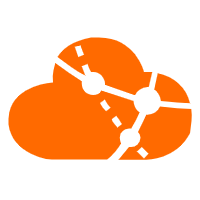By Sai Sarath Chandra, Alibaba Cloud Tech Share Author. Tech Share is Alibaba Cloud's incentive program to encourage the sharing of technical knowledge and best practices within the cloud community.
In this article, we will talk about the differences between Alibaba Cloud's two great offerings – Elastic Compute Service (ECS) and Simple Application Server (SAS).
We will try to cover all aspects in differences between the ECS and SAS. At the end of this, you will be able to make decide between the two products based on your business needs. We will talk in detail about both and then we will summarize the whole with a side-by-side comparison between ECS and SAS.
Before we begin, you will need an Alibaba Cloud account to try out what we are discussing. You can sign up for an account with this link.
Elastic Computer Service (ECS) offers all the features of physical servers without the overhead of managing the physical hardware. With ECS, you have the freedom of attaching the disks for extra storage, using backup images/new images, defining security groups & snapshots. These are available only with ECS Instance.
Because ECS is essentially a server, you will get complete control over what you can do. ECS is also compatible will a lot of products offered by Alibaba Cloud such as Block Storage, VPC, and EIP.
The ECS Console is user friendly and easy to use. All the functions are very easy to understand and named aptly as per the function. Alibaba Cloud is continuously evolving and the console is also changing rapidly with better features and User Interface for better user experience.
The following are some scenarios where we can use ECS instance for:
This is the new computing service specially designed for standalone applications scenarios. Simple Application Server is extremely easy to run; most of the steps required to deploy applications only involve clicking on buttons. It integrates with other services like Domain name publishing, website publishing, security, O&M and Application Management. This provides easy setup for entry level users.
In ECS, the instances are grouped into multiple families which helps us to choose for a specific purpose:
There are also categorizations for the enterprise users and the entry level users. Learning all about ECS is challenging as it comprises of a lot of information. If you want to learn more about the ECS Instance families, you can visit the following link https://www.alibabacloud.com/help/doc-detail/25378.htm.
You can also read about the comparison between different ECS instances through benchmarking at this link https://www.alibabacloud.com/blog/choosing-the-right-ecs-instance-through-benchmarking_411537
There is a separate certification available on Alibaba Cloud Training & Certification page where you can learn all relevant information regarding this.
In SAS we have both Application Images and System Images. The same instance types which are available in ECS are also available here.
ECS supports SSD Cloud Disks & Ultra Cloud Disks.
In Alibaba Cloud, users are provided with Elastic Block storage, which is a low-latency, persistent, and high-reliability random block level data storage. It uses a triplicate distribute system to provide 99.9999999% data reliability for ECS instances. Any disk you choose has this feature enabled.
Also the Elastic Block Storage provides the easy resizing at any time you want. Again this Elastic Block Storage is categorized into two types.
You can take a snapshot of the disks as a backup and restore it at a later point in time. You can also encrypt the entire disk for better security.
SAS uses only SSD for all instance types for improved performance. All the concepts of Elastic Block Storage of ECS still applies for SAS.
ECS instances leverages the Alibaba Cloud VPC (Virtual Private Cloud) and Classic networks.
VPC (Virtual Private Cloud)
These are isolated networks created in Alibaba Cloud and are logically isolated from each other. We can customise the topology and the IP addresses of the VPC but we need to have a good networking knowledge to do that.
Classic Network
If you choose classic network for your instance then the instance will be deployed on the public infrastructure of Alibaba Cloud.
You have the ability to connect to this instance both via Intranet and Internet. When we talk about intranet, Alibaba Cloud provides a gigabit of bandwidth for non I/O optimised instances and 10 gigabit of shared bandwidth for I/O optimised instances, with no special restrictions. You use Intranet typically for internally connecting to server load balancer, OSS and RDS.
Simple Application Server's network is ECS based Virtual Private Cloud (VPC)
Public Network: A public network IP is assigned for each Simple Application Server, and fixed public network bandwidth communication is also assigned. Note that you don't have control to change the public IP address assigned.
Intranet: All the SAS instances in same account are in the same VPC by default. All the SAS instances gets the 1Gbps shared bandwidth. Note that Intranets between different regions cannot communicate between, make sure you are deploying the application which is nearer to the target audience
Images are packaged running environment template for ECS Instances. It consists of operating system and preinstalled software. You can also create your own Image and upload it to the system for your own ECS instance.
You can obtain images from multiple sources
Simple Application Server comprises of Application and System Images.
The System Images comprises of only of the Core OS without any application/environment information. This gives freedom for setting up the application environment suitable for use-case.
The Application Images comprises of Operating System, Applications along with required environment and initialization data. With SAS you will get your application environment setup in 30 seconds.
All the images in provided in SAS are carefully curated by Alibaba Cloud Team to provide a seamless experience.
A Snapshot is the backup of the Elastic block storage at any given point of time. It can be done manually or triggered automatically. Currently Alibaba uses ECS Snapshot version 2.0, which has the "Incremental Snapshot Mechanism". Through which you can save a lot of disk space and the snapshots will perform faster with less load on I/O.
As per "ECS Snapshot 2.0" the backup are initiated at 00:00 every day. By default, the snapshots are retained for 10 days, but the user has the option to trigger the snapshot mechanism for several times a day, weekly, etc… Also the user can choose whether he want the snapshot to retain permanently in the system. In this case, after the snapshot limit is reached the oldest snapshot will be deleted from the system.
All the features we discussed in the ECS related to snapshots also apply to SAS.
As in typical production scenario, the cloud instances are hard to maintain if they are high in number. As a solution to this Alibaba Cloud provides "Cloud Assistant" available on both Windows and Linux which is a lightweight client helps to automate the maintenance scripts of the ECS instances using API's. Every action is completely controllable no actions are performed without your consent.
You will not get any cloud assistant to do batch jobs using API's on SAS. If you want these features, you need to opt for ECS instances.
For ECS, you get both the Pay-As-You-Go and subscription model. The pricing information changes from time to time but as per my experience Alibaba Cloud provides the best price with great performance in the industry.
For SAS, you get only the Subscription model. But compared to ECS models, SAS is cheaper because it has predefined configurations and it focuses on entry level resources.
I tried to compile some key differences which are relevant while deciding whether "Elastic Compute Service" or "Simple Application Server" is better suited for your business use case. Please feel free add more information in the comments if there is anything that I missed out.
| Attribute | ECS | SAS |
| Overall Control | High | Less |
| Experience | Some Cloud experience required | No Cloud experience required |
| Cloud Assistant | Available | Not Available |
| VPC | Yes | Yes |
| Classic Network | Yes | No |
| Marketplace | Yes | No |
| Pay-As-You-Go | Yes | No |
| Overall Price | High (compared to SAS) | Less (Compared to ECS) |
| Custom Images | Yes | No |
| System and Application Images | Yes | Yes |
After discussing all the features of ECS and SAS, we can see that both are powerful products but targeted for users at different levels of experience in cloud computing. If you are a beginner in cloud, then SAS would be good start to learn the basic networking, configurations and deployments. If you are good with networking & want full control of your instance, then you should choose ECS where you can also access the open API provided by Alibaba Cloud for automating maintenance tasks using Cloud Assistant.

2,593 posts | 792 followers
FollowAlibaba Clouder - April 28, 2021
Alibaba Clouder - February 24, 2021
Alibaba Clouder - March 14, 2019
Alibaba Clouder - March 18, 2021
GAVASKAR S - October 12, 2020
Alibaba Clouder - July 31, 2020
Good article.If I try SAS now, can I upgrade to ECS later?

Hi~ there, you can contact our sales for more information https://www.alibabacloud.com/contact-sales . You can also take a look at our free trial program https://www.alibabacloud.com/campaign/free-trial/enterprise

2,593 posts | 792 followers
Follow ECS(Elastic Compute Service)
ECS(Elastic Compute Service)
Elastic and secure virtual cloud servers to cater all your cloud hosting needs.
Learn More Simple Application Server
Simple Application Server
Cloud-based and lightweight servers that are easy to set up and manage
Learn More VPC
VPC
A virtual private cloud service that provides an isolated cloud network to operate resources in a secure environment.
Learn MoreMore Posts by Alibaba Clouder
Raja_KT February 15, 2019 at 5:41 am
Good one. I think it is good to highlight for this whether it SATA or SAS SSD in..."Ultra Cloud Disks: Ultra Cloud Disks are hybrid media of both HDD and SSD as a storage media"